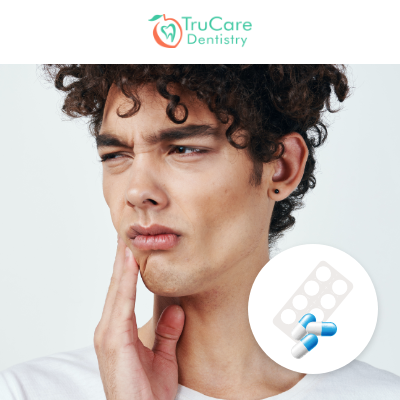
The oral cavity or mouth plays a crucial role in handling digestive enzymes, salivary proteins, microbiota, food, and even medicines.
As you are aware, there are good and bad bacteria. The latter can cause illness and infection if they manage to enter the bloodstream. And this is where tooth extraction, infection, and antibiotics come into the picture.
Let’s start with dental extraction basics. Then, focus on causes of infection and how Amoxicillin helps control the same:
Most reported reasons for dental extraction
A dental extraction remains the last option for every dentist. Saving natural teeth is every professional’s motto. Yet, in some cases, extraction becomes inevitable to protect the patient’s oral health.
It’s common knowledge that severe decay and trauma often result in a damaged tooth. Let’s take a look at other reported reasons that make restoration impossible:
- Overcrowded mouth
- Serious dental infection in the tooth pulp and root
- Severe gum disease
- Tooth breakage
- Impaction
Extraction procedures
The dental extraction procedure is either surgical or straightforward.
You guessed it right. If the tooth is visible, your dentist can use forceps and other instruments to pull it out. Specialists administer local anesthesia and ensure the patient does not feel discomfort. The dental office may or may not prescribe painkillers post-procedure.
Now comes the complicated one. In some cases, the tools cannot reach the tooth in question. It’s entirely below the gum line, or some of its parts remain broken below the gums. The only way to extract such teeth is by performing a surgical extraction.
The post-procedure wound can be significant. Patients need to take certain precautions for quicker healing and avoiding infection.
Possibility of infections after dental extraction
As mentioned earlier, wisdom teeth extraction might become necessary at times. Dentists perform a surgical procedure for removing the tooth. The process can also be invasive, depending on the condition of the patient’s tooth.
A small wound is formed at the operated spot post-surgery. It can become infected and result in pain, pus, swelling, and even fever.
Chances of developing complications are rare. But, an infection can prove unpleasant as it can impact a patient’s ability to speak, chew, and clean the teeth. Your dentist will prescribe antibiotics, clean the wound, and drain the pus. You might need to take a few days off work.
Are antibiotics prescribed after every dental extraction? The answer to this frequently asked question varies from one patient to another. The decision depends on the type of tooth, the patient’s oral health, and the reasons behind the extraction.
The good bacteria present in the mouth do a superb cleaning job. Thus, there is no need to administer antibiotics in most cases. Your oral surgeon can recommend the same in case you have a medical condition. Dentists also prescribe medicines if there’s a pre-existing infection, oral disease in the mouth.
Amoxicillin’s role in preventing infections
Several studies have proved that Amoxicillin’s use (as a prophylactic antibiotic) can reduce the chances of infection post tooth extraction.
Amoxicillin is cost-effective and works with significantly fewer adverse effects. A high tolerability rate, high plasmatic concentrations, better absorption make it perfect. Plus, a broad spectrum of action has made it irreplaceable in modern dentistry. The drug’s use and benefits in tooth extraction procedures have been extensively studied in the past.
Managing post-extraction pain, inflammation, and infection with Amoxicillin
Intense pain at the extraction site indicates a possibility of a strong inflammatory response. If left untreated, the condition may trigger trismus, malaise, fever, local tension of tissues, or lymphadenopathy.
Using Amoxicillin can result in atraumatic healing of the site by diverting potential inflammatory pathways and modulating the microbial load.
Amoxicillin also reduces the chances of developing dry socket, swelling, and trismus. There’s no need to worry about postsurgical infections after a long-duration surgery.
Dental surgeons may prescribe Amoxicillin before and after third molar surgery, trans alveolar extraction, and impacted tooth extraction.
Why are antibiotics necessary for patients from high-risk groups?
Let’s get back to basics for a few seconds. The high-risk population includes persons with medical risk-related histories or underlying comorbidity.
Several medical boards and bodies recommend the use of antibiotic prophylaxis for patients in high-risk groups. Depending on the type of surgery, the drug can be prescribed before or post invasive dental procedures.
Unwanted effects of antibiotics
Medications kill infection-causing bacteria and control their growth. They also help in easing pain. Yet, dentists are cautious when it comes to prescribing medicines.
Two of the most common side effects of antibiotics are nausea and diarrhea. You don’t wish to end up spending an enormous amount of time in the washroom, do you?
Some patients are allergic to antibiotics altogether. Plus, taking antibiotics can result in ‘antimicrobial resistance.’ The patient may not enjoy the medicine’s effectiveness in the future.
The endpoint:
Amoxicillin has a proven track record for controlling post-extraction complications. Are you searching for a dental clinic in Roswell (GA) that specializes in dental extractions?
Fix an appointment at TruCare Dentistry today. Our dental surgeons ensure the patient does not experience discomfort during and after the procedure.
